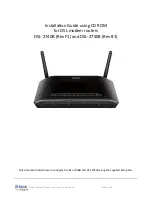
38-10
Cisco IE 3000 Switch Software Configuration Guide
OL-13018-03
Chapter 38 Configuring EtherChannels and Link-State Tracking
Configuring EtherChannels
•
When a group is first created, all ports follow the parameters set for the first port to be added to the
group. If you change the configuration of one of these parameters, you must also make the changes
to all ports in the group:
–
Allowed-VLAN list
–
Spanning-tree path cost for each VLAN
–
Spanning-tree port priority for each VLAN
–
Spanning-tree Port Fast setting
•
Do not configure a port to be a member of more than one EtherChannel group.
•
Do not configure an EtherChannel in both the PAgP and LACP modes. EtherChannel groups running
PAgP and LACP can coexist on the same switch. Individual EtherChannel groups can run either
PAgP or LACP, but they cannot interoperate.
•
Do not configure a Switched Port Analyzer (SPAN) destination port as part of an EtherChannel.
•
Do not configure a secure port as part of an EtherChannel or the reverse.
•
Do not configure a port that is an active or a not-yet-active member of an EtherChannel as an
IEEE 802.1x port. If you try to enable IEEE 802.1x on an EtherChannel port, an error message
appears, and IEEE 802.1x is not enabled.
•
If EtherChannels are configured on switch interfaces, remove the EtherChannel configuration from
the interfaces before globally enabling IEEE 802.1x on a switch by using the
dot1x
system-auth-control
global configuration command.
•
For Layer 2 EtherChannels:
–
Assign all ports in the EtherChannel to the same VLAN, or configure them as trunks. Ports with
different native VLANs cannot form an EtherChannel.
–
If you configure an EtherChannel from trunk ports, verify that the trunking mode (ISL or
IEEE 802.1Q) is the same on all the trunks. Inconsistent trunk modes on EtherChannel ports can
have unexpected results.
–
An EtherChannel supports the same allowed range of VLANs on all the ports in a trunking
Layer 2 EtherChannel. If the allowed range of VLANs is not the same, the ports do not form an
EtherChannel even when PAgP is set to the
auto
or
desirable
mode.
–
Ports with different spanning-tree path costs can form an EtherChannel if they are otherwise
compatibly configured. Setting different spanning-tree path costs does not, by itself, make ports
incompatible for the formation of an EtherChannel.
Configuring Layer 2 EtherChannels
You configure Layer 2 EtherChannels by assigning ports to a channel group with the
channel-group
interface configuration command. This command automatically creates the port-channel logical
interface.
















































